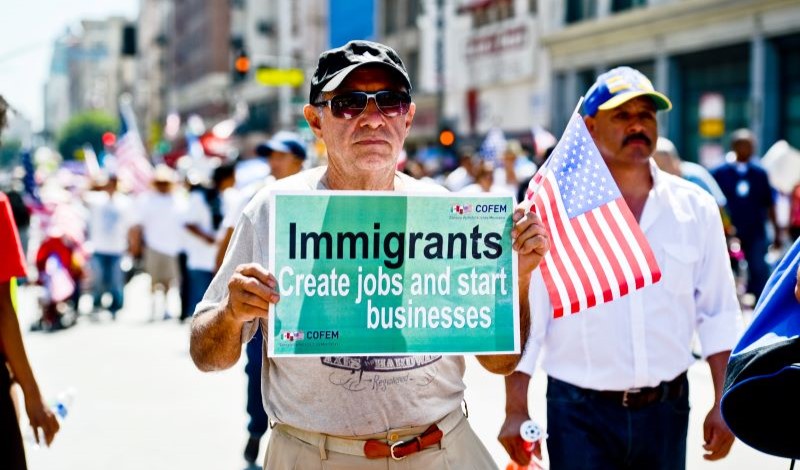
Scholar advocates using antitrust law to remedy discrimination against immigrant workers.
Is discrimination against immigrant workers just a social harm or also an economic injury that antitrust law can remedy?
In a recent article, Gregory Day, an associate professor of legal studies at the University of Georgia Terry College of Business, argues the latter and that discrimination against immigrant workers is an illegal exercise of market power that violates antitrust law.
Day explains that because antitrust’s consumer welfare standard—which intends to benefit consumers collectively—does not protect particular groups such as immigrants, antitrust law allows for the exclusion of immigrants in an effort to promote competition.
Native workers in the United States, Day contends, historically in the late nineteenth and early twentieth century used labor unions to discriminate against immigrants that competed with them for jobs.. Unions worried that immigrants would lower wages, break up strikes, and take jobs. In an effort to defeat competition, labor unions charged that immigrants from places such as China and Eastern Europe could not assimilate into the United States and the American workforce.
Day argues that the U.S. government aided labor unions in limiting competition native workers faced from immigrants. In 1931, Congress passed the Davis-Bacon Act, which mandated that employers engaged in federally funded construction projects pay the “local prevailing wage” to their employees. Day argues that one intended purpose of the Act was to raise salaries to a point where employers would stop hiring immigrants and people of color. Day notes that a U.S. House of Representatives member even claimed that it would prevent non-unionized Black and immigrant workers from competing with white workers.
Day explains that today immigrant workers cannot use the same antitrust “self-help remedies” that native workers use. For example, immigrant workers may not be able to contest wage underpayments or poor working conditions due to fears of deportation or arrest. Consequently, employers are more easily able to exploit immigrant workers. Day contends that although the Sherman Antitrust Act of 1890—a federal law that bars monopolistic business practices—is supposed to address such improper exercises of market power, courts have seldom applied it to address the exploitation of immigrants.
Day argues that although antitrust law aims to combat improper uses of market power, it has seldom corrected discrimination against immigrants. Antitrust law aims to measure the collective welfare of consumers, Day explains, and overlooks the harms that immigrants face as a result. Day characterizes the uniform approach that antitrust law takes toward consumers as “colorblind”: It fails to acknowledge the unique way in which immigrants can be excluded from competition.
Day proposes changes to antitrust doctrine that would recognize different groups of workers—such as immigrants, undocumented immigrants, and temporary workers—to remedy discrimination against immigrant workers and workers of color.
Day notes hesitancy, however, on the part of scholars and courts to characterize discrimination as anticompetitive behavior. Certain scholars and courts have contended that the purpose of antitrust law is not to pursue equality—to remedy what they see as non-economic harms. These scholars argue that racism makes little economic sense and disadvantages employers that engage in racist practices. Discrimination, these scholars argue, is a personal, non-economic issue that antitrust law should not address, but instead should be addressed by new legislation.
Day disagrees and argues that antitrust law, not new legislation, should be used to remedy discrimination against immigrant workers. Day argues that antitrust law is appropriate because anti-immigrant discrimination is an inherently anti-competitive act—anti-immigrant worker discrimination exists because immigrant workers compete with native workers. Day contends that because discrimination against immigrant workers is not only a social harm but conduct that has an adverse economic effect, antitrust law is the appropriate remedy.
As a practical matter, Day adds, Congress, Day is unlikely to enact new civil rights legislation. Day contends that antitrust law, which already exists, contains statutory language open ended enough to address discrimination against immigrant workers.
Day concludes by noting that the Sherman Act does not require that antitrust law be “colorblind.” Antitrust law, Day emphasizes, can provide a solution to inefficiency and loss created from excluding immigrant workers. The main challenge, Day contends, is convincing courts, policymakers, and scholars to view discrimination as not just a social harm but as also an economic injury.



